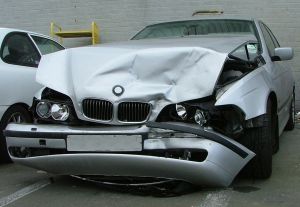 The subject of this blog is a recurring theme in our law firm and in every law firm in the state involved in motor vehicle accident litigation.
The subject of this blog is a recurring theme in our law firm and in every law firm in the state involved in motor vehicle accident litigation.
Insurance coverage is a key issue in every Florida motor vehicle accident case. It is relevant to medical expenses, lost wages, vehicle repairs or replacement, and compensation for non-economic losses like pain and suffering.
Florida law controls some aspects of every motor vehicle insurance policy issued in Florida. At the moment, every new policy must include Personal Injury Protection (“PIP”) and Property Damage — Liability coverage. PIP provides a limited amount of coverage for the insured’s own medical expenses and lost wages — see Florida Statute 627.736. Property Damage — Liability provides a limited amount of coverage for damage to the property of others caused by the at-fault insured.
Nothing more in the way of insurance coverage is required for a vehicle registered in Florida to be operated lawfully in the state. The minimum mandatory policy is the least expensive policy available, explaining why so many motorists purchase it. Because it complies with Florida law, its owners often think they have “Full Coverage.”
Since numerous other types of insurance coverage besides the minimum mandatory are available with every motor vehicle policy issued in Florida, it can hardly be said that the minimum mandatory policy provides “Full Coverage.” Of course, a premium is charged for every additional coverage type.
The minimum mandatory policy does not cover these damages*:
- Personal Injury — Liability. Under Florida law, individuals who sustain serious bodily injuries through the negligence of others are entitled to be compensated for their pain and suffering. The minimum mandatory policy does not cover this loss.
- Economic Loss — Liability. Individuals injured through the negligence of others have the right to be compensated by those at-fault for their economic losses. The two most common forms of economic loss are income (past and future) and medical expenses (past and future). The at-fault person’s minimum mandatory policy does not cover this form of loss.
By purchasing a policy containing uninsured/underinsured motor vehicle (UM/UIM) coverage, motorists can insure themselves against the consequences, as noted above, of the minimum mandatory policy. UM/UIM is first party insurance, meaning that the insured’s own insurance company pays the insured, rather than the payment coming from a different insured’s policy, known as third party coverage. What it covers are damages for personal injuries and economic losses. Coverage limits can be as low as $10,000, as high as whatever the insured desires. UM applies when the tortfeasor (the at-fault party) does not have Bodily Injury coverage. (BI insurance covers personal injuries and economic losses. It is not part of the minimum mandatory policy.) UIM applies if the tortfeasor’s BI coverage limits are not high enough to cover the losses.
In its typical primitive and backward way, Florida is one of the only states that does not make BI a mandatory coverage. However, even if it were mandatory, the coverage limits would not be high enough to fully cover substantial personal injuries and economic losses. The only way a motorist can be assured of having substantial insurance protection to cover substantial personal losses is to purchase UM/UIM.
True “Full Coverage” costs substantially more than minimum mandatory coverage. Motorists must decide if the investment is worthwhile. Catastrophic motor vehicle crashes happen, especially in South Florida. When they do, those harmed better hope for more than minimum mandatory coverage.
*The coverage available under a minimum mandatory policy does not repair or replace the insured’s vehicle. A separate coverage called “Comprehensive/Collision” is required for this.
***************************************************
Contact us toll free at 866-785-GALE or by email (jgale@jeffgalelaw.com) for a free, confidential consultation to learn your legal rights.
Jeffrey P. Gale, P.A. is a South Florida based law firm committed to the judicial system and to representing and obtaining justice for individuals – the poor, the injured, the forgotten, the voiceless, the defenseless and the damned, and to protecting the rights of such people from corporate and government oppression. We do not represent government, corporations or large business interests.
While prompt resolution of your legal matter is our goal, our approach is fundamentally different. Our clients are “people” and not “cases” or “files.” We take the time to build a relationship with our clients, realizing that only through meaningful interaction can we best serve their needs. In this manner, we have been able to best help those requiring legal representation.
 Florida Injury Attorney Blawg
Florida Injury Attorney Blawg

